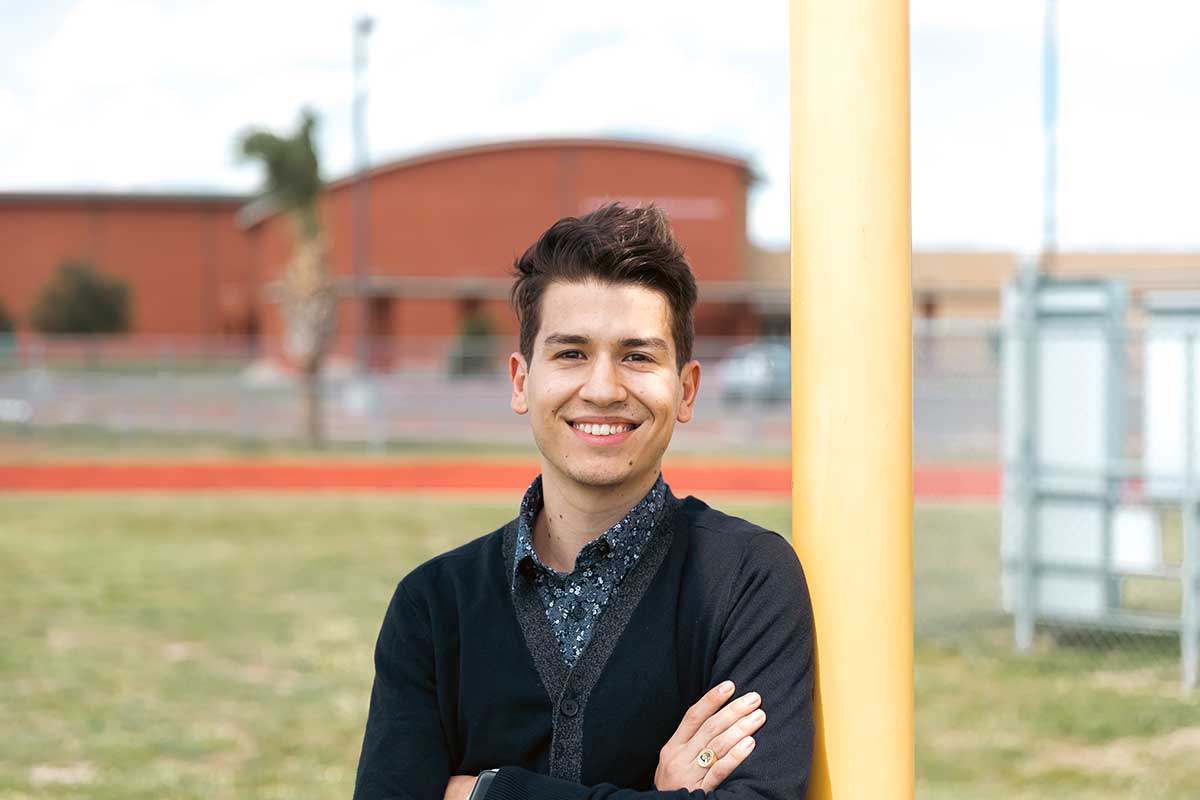Teach for America (TFA) is a national nonprofit organization committed to the vision that all children deserve access to an excellent education. The organization finds outstanding leaders, who dedicate themselves to ending educational inequity, beginning with an initial two-year commitment to teach in some of the nation’s most underserved schools. Here in the Rio Grande Valley, 55 teachers, known as corps members, work in nine districts across the region. Since 2003, through its sponsorship of the organization, Magic Valley Electric Cooperative has supported educators who teach within its service area. Here is a deeper look at one of those current teachers.
Brief Bio: Corps Year, Grade/Subject Taught, School
Hi! My name is José Luis Castillo, and I am a 2020 Teach for America corps member, teaching 7th grade math at Audie Murphy Middle School, in PSJA ISD.
What motivated you to apply to join Teach for America and choose to teach in the Rio Grande Valley?
I studied chemical engineering in college, and even though I enjoyed the majority of my courses, I felt as though something was missing. When my senior year of college came around, I knew I wanted to help others, but it wasn’t until I spoke to my Teach for America recruiter that I finally decided how I would do so. TFA’s mission of seeking equity for all deeply resonated with me and reminded me of my former teachers, some of whom were from TFA and who, thanks to their constant encouragement, helped me get to and through college. Having grown up in a low-income and primarily Hispanic community in California, I understood the importance of having strong and passionate teachers in the classroom. I wanted to be able to push my students to reach their full potential in STEM the same way that my TFA teachers did for me.
If you could change one thing for your students, what would it be?
If there were one thing that I could change for my students, it would be for them to have the ability to be just students. I grew up hearing that our only job as kids was to go to school and get good grades. However, that’s not the reality for so many of the children I teach. They have so much pressure on them to take on and deal with so many other things at home that we can’t expect them to come to school at their best every single day. All of that pressure in turn puts a lot of strain on their mental health that they struggle to deal with, so I wish they also truly understood that there are resources available to help them.
What lessons are you learning now that will help you continue to work toward educational equity in the future?
I’m learning that, as educators, we cannot just be passive sources of information; we need to be responsive to the various needs of all students in the classroom. The education system may never truly become what we need it to be for our students—I think most TFA teachers can tell you about the inequities they see at play daily—but the difference continues to be caring teachers pushing their students to work hard and dream big. I will continue working to improve as an educator in order to help these students seek and reach for the opportunities that an inequitable education system can rob them of.
Can you share an anecdote or personal experience from your classroom or school?
It is difficult to choose one personal anecdote from my classroom because my experience has been an accumulation of many joyful and funny moments with my students. However, there have been instances that have truly made me feel like I am making a difference with these kids, despite any doubts that may come up. Just two weeks ago, I had one of my students ask me if I could please teach 8th grade next year instead of 7th grade so that I could continue moving forward with her class. It can be difficult, especially in this first in-person year of teaching, to feel like I am having a positive impact on these students when teaching them a subject that they typically hate, like math. To hear my student ask me such a simple question and follow up with multiple points to try and convince me to make a grade-level switch really highlighted for me how these students truly feel about me. It helped me see that I am accomplishing what I set out to do, which was to help these kids enjoy math again. Moments like that show me that I have chosen the perfect career path for myself.


